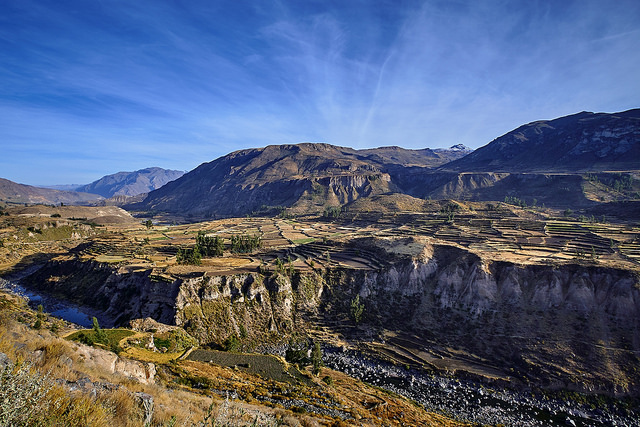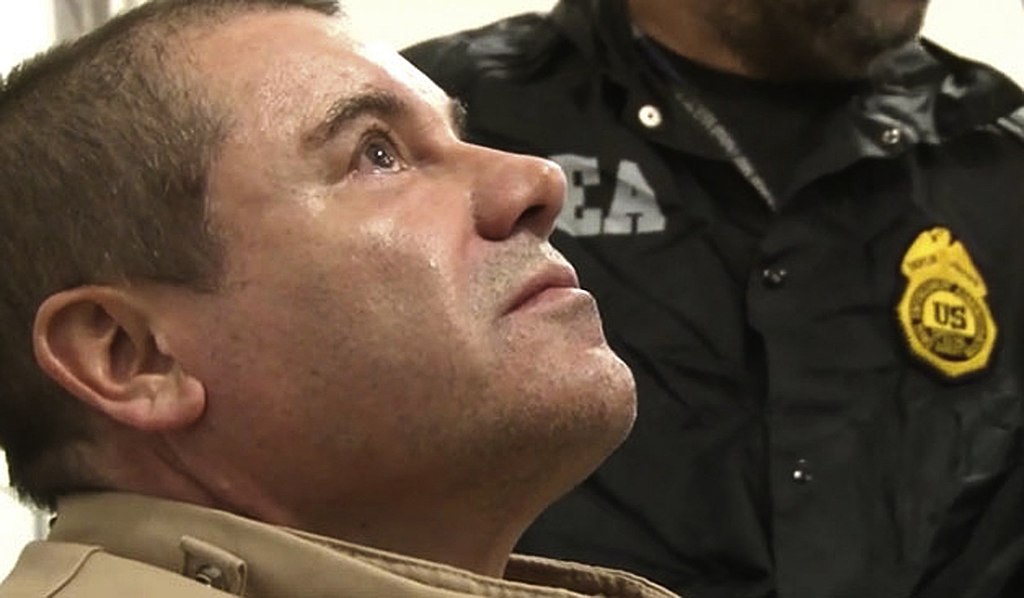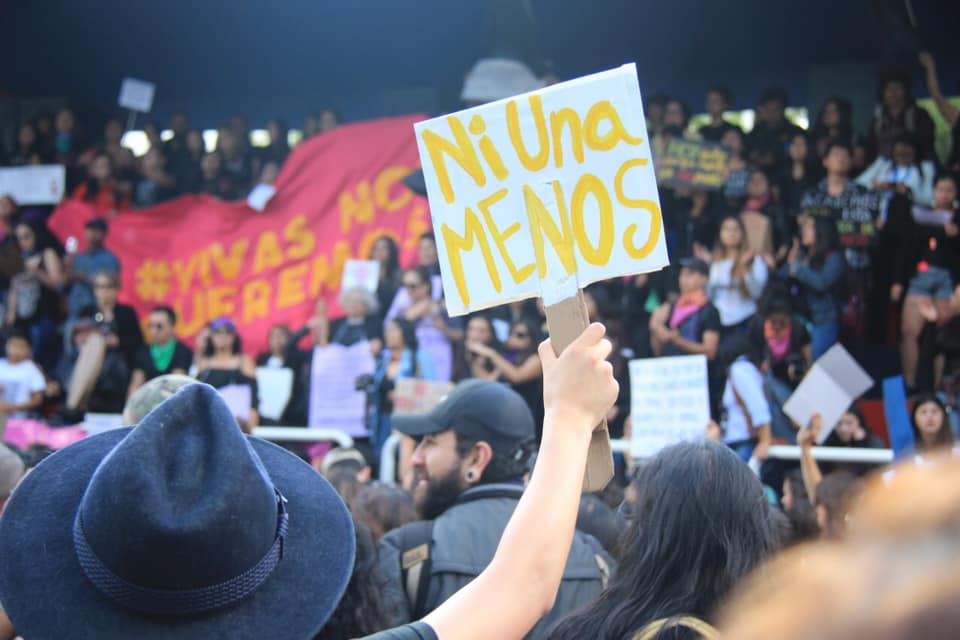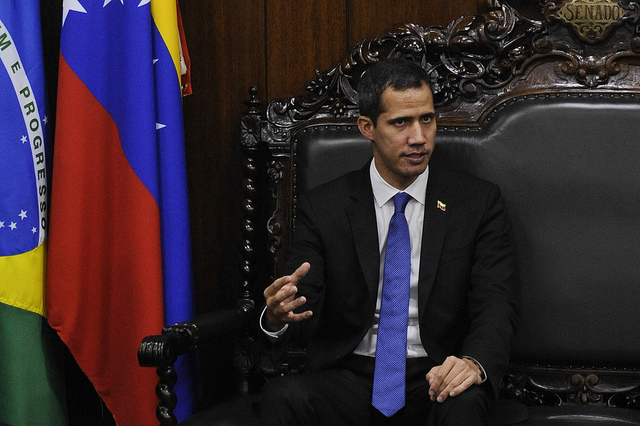
Latin America: Week in Review
Peruvian Officials Negotiate to End 51-Day Mining Town Strike
March 28, 2019 By Staff
TODAY IN LATIN AMERICA
PERU: Three government ministers traveled to the remote mining town of Fuerabamba yesterday to try and put an end to a 51-day long protest that has blocked exports from the country’s largest copper mine. Before negotiations can begin, the government commision will first have to determine who to talk to.
Protests intensified after three community leaders were arrested last week for allegedly extorting MMG, the Chinese state-owned mining company that runs the Las Bambas mines. Both MMG and the government have expressed their willingness to negotiate, but protesters refuse to lift the blockade until their leaders are released. The vice president of Fuerabamba, Edison Vargas, told reporters he is currently in hiding due to an arrest warrant issued for him, which has prohibited him from joining the negotiations. MMG’s Las Bambas mine produces 2 percent of the world’s copper.
HEADLINES FROM THE WESTERN HEMISPHERE
NORTH AMERICA
MEXICO: Mexico has witnessed an explosive increase in complaints of sexual assault and harassment as the #MeToo movement took off last week. Although Mexico seemed hesitant to join the #MeToo movement in 2017, the movement has gained traction in the creative and media industries. A group of female writers took Twitter this week to share incidents of sexual harassment, physical attacks and bullying in the workplace. The movement erupted, and people in several industries started their own #MeToo accounts, where journalists, musicians, filmmakers and academics, among others, began denouncing assault and harassment. Yesterday, prosecutors in western Mexico said they would begin investigating public complaints.
UNITED STATES: On Tuesday, President Donald Trump told Republican legislators that Puerto Rico received much more funding to rebuild after Hurricane Maria than mainland states. According to Senator Marco Rubio, Trump told Republicans during a meeting that the aid sent to Puerto Rico is “way out proportion in comparison to what Texas and Florida and others have gotten.” This is not the first time Trump has expressed his opposition in regards to disaster aid funding for Puerto Rico.
MEXICO: At least 15 bodies were found in clandestine graves in the Gulf coast state of Veracruz by groups of officials and relatives of missing people. Head Veracruz prosecutor Jorge Winckler Ortiz confirmed that search teams dug up 12 sets of remains and located three other bodies which have not yet been excavated. These findings add to the hundreds of clandestine graves that have been found in the southern state, where the violence of drug cartels and gangs has increased over recent years.
CARIBBEAN
ST. KITTS AND NEVIS: The European Union has pledged $5 million in renewable energy sources for the twin-island nation of St. Kitts and Nevis. Infrastructure developments like an underground electrical power supply and energy-efficient street lights are among the projects expected to be completed with the investment. The island of Nevis already runs entirely on zero emission geothermal power.
CENTRAL AMERICA
EL SALVADOR: A new arrest warrant has been issued for former President Mauricio Funes, this time for tax evasion. The former leader of the left-leaning Farabundo Martí National Liberation Front (FMLN), Funes is accused of evading over $85,000 in taxes in 2014, when he was still serving as president. Funes, who has been exiled in Nicaragua since 2016, responded to the warrant via social media, saying that the accusation was fabricated in order to “jail him at any cost.”
NICARAGUA: Over 65,000 Nicaraguans have received health evaluations in a public kiosk in the capital city, expanding healthcare at a very low cost or free of charge. Since the kiosk began operating in a mall in Managua, the Estación Vital (Vitals Station) has given over 287,000 evaluations, including blood pressure, weight and information on cholesterol and triglyceride levels. Five more kiosks are expected to start operating in the next year.
ANDES
ECUADOR: Anti-Corruption Secretary Iván Granda accused former president Rafael Correa yesterday of receiving over a quarter of a million dollars from Venezuelan President Nicolás Maduro to destabilize the current government of President Lenín Moreno. According to Granda, Venezuela’s national development bank funneled $281,000 into a foundation run by Correa to be distributed among himself and other close associates. While Moreno warned other countries to be wary of similar attempts at destabilization, Correa rejected the accusations via Twitter. Relations between Correa and Moreno soured after the current president began to abandon the socialist policies of his predecessor, who supported him during elections.
SOUTHERN CONE
CHILE: A court ruled yesterday that the Catholic Church must pay close to half a million dollars to three victims of the country’s most heinous pedophile priest. The appeals court ordered that each victim of Reverend Fernando Karadima be given roughly $150,000 each for “moral damages” caused by his sexual abuse. The landmark case paves the way for other victims to seek compensation for abuses committed by the country’s clergy. The Santiago Archbishopric stated that it will not appeal the ruling, and hopes that the compensation will act as a kind of reparation after years of coverups. Pope Francis also replaced Cardinal Ricardo Ezzati, the former archbishop of Santiago, for protecting the pedophile priest and ignoring victims.
URUGUAY: Voters have supported a referendum to stiffen law and order amid a spike in violent crime. The referendum, driven by former presidential candidate and conservative opposition senator Jorge Larranaga, resonated with a sixth of the country’s electorate and will be voted on during the October elections. The measures proposed include life imprisonment for multiple murders, contract killings and the rape and murder of minors. The initiative would also give the military more responsibilities in domestic security. Uruguay, often viewed as a safe haven compared to most of the region, saw a 46 percent spike in homicides last year. The current government of President Tabaré Vázquez has been seen soft on crime and unable to curb the rising trend, a weakness the opposition has capitalized on.




